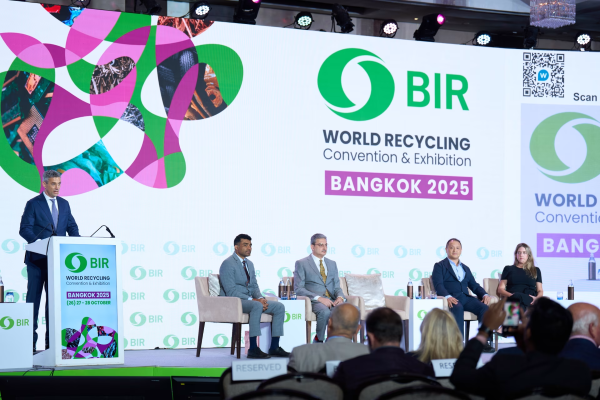At the Stainless Steel & Special Alloys Committee meeting on the last day at Bureau of International Recycling (BIR) World Recycling Convention in Bangkok on October 27-28, 2025, industry leaders warned that the stainless steel and special alloys sector is heading toward a more restrictive trade environment driven by regionalization, export limits, and rising protectionism. During the committee meeting, topics included the shift from globalization to regionalization, restrictions, tariffs and changing trade flows.

According to Vegas Yang, CEO of Taiwan-based stainless steel scrap processor HSKU Raw Material Ltd., China’s market remains weak amid tariff tensions, while India’s stainless industry faces US tariffs despite overall growth potential. In contrast, the US stainless market was reported as “healthy,” supported by a 50 percent import tariff and stable domestic demand, with melt rates exceeding 80 percent capacity.
Rising protectionism challenges global stainless trade
Emily Sanchez, chief economist at US-based ReMA Group, said the medium-term trade environment is unlikely to become less restrictive. She highlighted a mismatch between policymakers’ understanding of recycled materials versus primary commodities, warning that new export license systems and domestic preference schemes could distort the market. She cautioned that trade restrictions risk triggering retaliatory measures, creating “fragmented markets that serve no one.”
The “Trump effect” and stainless processing outlook
Mahiar Patel, managing director of Singapore-based Cronimet, said the US policy environment under US president Trump had yet to fully impact stainless processing. However, he expects lower scrap exports from the US and greater domestic benefits from incentive schemes, reducing availability for Asian buyers in the near term.
In India, Dhruv Goel, CEO of BigMint, said the government is acting to safeguard domestic stainless production as globalization gives way to regionalization. With limited domestic scrap generation, Indian producers are turning to nickel pig iron (NPI) as an alternative. India’s largest stainless producer, Jindal, has already invested in an NPI plant in Indonesia to secure supply.
Europe prepares for carbon border measures
In Europe, the upcoming Carbon Border Adjustment Mechanism (CBAM), scheduled for January 2026, will impose a carbon cost on imported carbon-intensive goods. According to Vegas Yang, CBAM could benefit Europe’s stainless and scrap recycling industries by encouraging cleaner production, though the transition may bring bureaucratic and regulatory uncertainty.